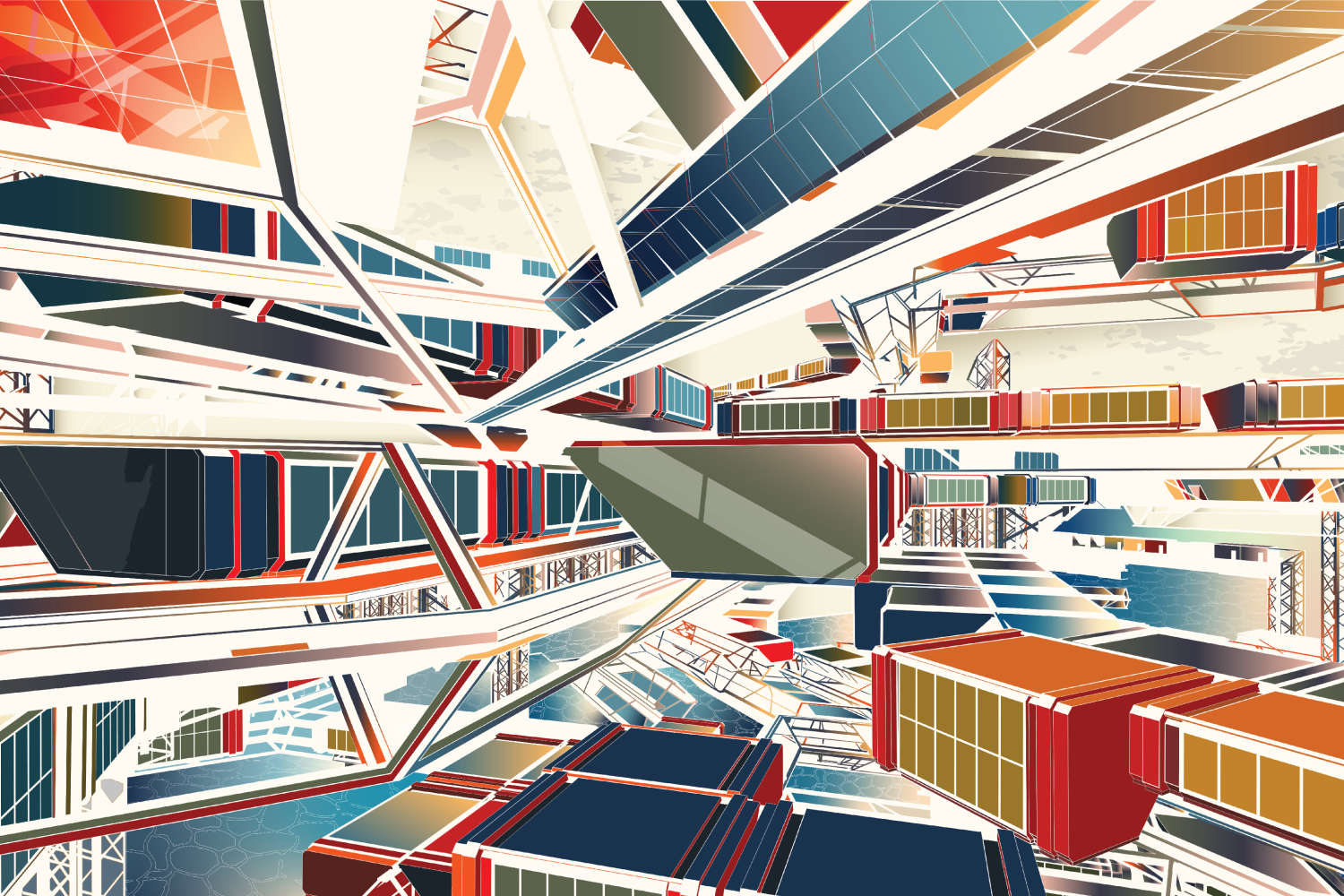The project is a rabid criticism of our current addiction to fossil fuels and proposes a shift towards algae biofuel as a more sustainable form of energy, and a new market of carbon sequestration. The project imagines a speculative Asian coalition centralised in the Spratly Islands with programmes of biofuel production, algae research labs, and housing communities espousing a collective and collaborative effort towards climate management in favour of uncoordinated forms of sustainability.
Contemporary architecture projects operate in an insular manner where it considers only its own circularity. What it fails to recognise and addresses are the emissions and unsustainable practices that largely occur outside the realm of architecture and the carbon that has already been released into the atmosphere.
The project thus amplifies sustainability into a regional scale that tackles unsustainable energy practices of fossil fuel, but also mitigates the damage of past emissions. Algal biofuel is the only alternative that can do both – a cleaner form of energy source and the capability to sequester and store carbon.
Moreover, the compact and industrial typology of production infrastructures (factories, oil rigs) is traditionally perceived as repugnant. The project adapts the current industrial aesthetic into an architecture assemblage that accommodates mixed-use programmes that include research labs and housing units.





